Search Results
Showing results 41 to 60 of 229
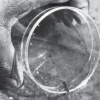
Water Striders
Source Institutions
In this outdoor activity/field trip, learners catch and observe water striders to explore their movement and feeding behaviors.
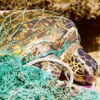
All Tangled Up
Source Institutions
In this activity on page 60, learners examine and simulate wildlife entanglement by experiencing what it might be like to be a marine animal trapped in debris.
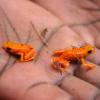
Dress Like a Frog
Source Institutions
In this activity, learners will discover what it takes to be a frog. By dressing up like one, learners can visualize how each part of the frog plays an important role in surviving its habitat.
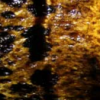
Amphibian Skin
Source Institutions
In this activity, learners explore the concept of permeability to better understand why amphibians are extremely sensitive to pollution.

How Big Were the Dinosaurs?
Source Institutions
In this activity (located on page 4 of PDF), learners gain insight into the actual size of dinosaurs and practice making estimations and measurements.
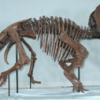
Dinosaur Names: Common and Science Names
Source Institutions
In this activity, learners explore how dinosaurs are named and what their names mean. Learners listen to "The Littlest Dinosaurs" by Bernard Most.
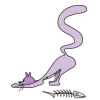
Supporting Structures
Source Institutions
In this activity about living things and gravity (page 5 of PDF), learners design and build an exoskeleton or an endoskeleton for an animal of their own invention.
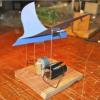
Motor Bird
Source Institutions
In this activity, learners build a bird that flies in place with help from a motor, wire, and some straws.
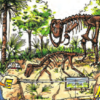
Dinosaur Interaction
Source Institutions
In this activity, learners explore why animals, specifically dinosaurs, live in families.
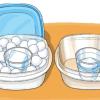
Save a Snowman
Source Institutions
In this activity, learners explore the concept of insulation by trying to keep Olaf the Snowman from melting. This activity encourages critical thinking and problem solving.
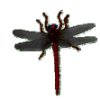
Going Buggy: Three Body Parts
Source Institutions
In this fun snack and craft activity, young learners make "Ants on a Log" and their own model of an insect. The purpose is to learn the three main insect body parts—head, thorax and abdomen.
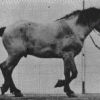
Horse Gaits Flipbooks
Source Institutions
In this activity, learners explore the gait of horses by constructing flipbooks with British photographer Eadweard Muybridge's famous photographs.
Caterpillar Measure
Source Institutions
In this activity, young learners use different-sized paper 'caterpillars' and various household items to predict and measure their height.
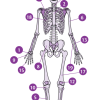
Inner Strength
Source Institutions
In this activity about endoskeletons (page 8 of PDF), learners observe, compare and contrast different kinds of chicken bones, and relate their chicken bone observations to human bones.
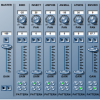
Sound Mixer: A Multi-track Mixer of Animal Sounds
Source Institutions
This is a virtual representation of a sound mixer containing pre-looped sounds of animal, insect, and environmental noises.
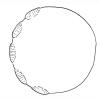
Elephant Foot
Source Institutions
Using a real-size sketch of a baby elephant's footprint, learners estimate, measure and record the width (diameter) and outside edge length (perimeter or circumference) of the footprint.
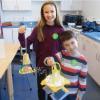
Engineer A Bird Feeder
Source Institutions
In this activity, learners of all ages will design a functional bird feeder using familiar, every day materials.
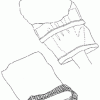
How Animals Stay Warm
Source Institutions
In this quick activity, learners explore how blubber protects animals from the cold by making a "blubber mitt." Using cooking shortening, two zip-top sandwich bags, and duct tape, learners simulate bl
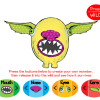
Monster Evolution
Source Institutions
In this online activity, learners create monsters and see how they survived when released into the wild.

Beach Finds Curiosity Cart
Source Institutions
In this activity, learners observe hard parts of sea creatures (shells, molts, etc.) to better understand marine environments.
